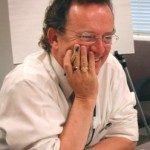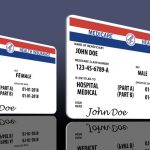Education
David J. Schleich, PhD
At the end of a long day at a recent conference, a half-dozen new naturopathic doctors, just recovering from NPLEX, were looking for advice. They sought perspective on what it takes, business-wise, to succeed out of the gate in private practice, as compared to working for somebody else. They’d been hearing that not only allopathic physicians, but also our own physicians, were trending toward being employed rather than risking starting up their own businesses. They pointed to maddeningly high malpractice insurance costs, the merciless schedule of the self-employed docs, the sharp advantage of the single-specialty practice, and all of these within the context of a health services marketplace filled with competition in every niche and specialty, not to mention an overall professional identity confusion among providers self-identifying as naturopathic, holistic, integrative, and functional. Managed care, they said, has put a serious damper on individual preference in practice in terms of prognosis, pacing, and branding, and on choosing a self-determined practice.
Both working for yourself and working for others can be a horse race, I told them, speaking from my perspective of 3 decades in the field of naturopathic education and against a backdrop of my having visited about 700 naturopathic doctor offices all over North America during that time. I began with a broad claim: there has never been a better time to be an ND.
In thoroughbred horse racing, I declared, a jittery horse that breaks out of the gate too soon can be re-gated and start up again with everyone else. But in our world, no such luck. Once out of the gate, the race is on and the meter is running. The track looms. Choosing the right pace and place in the race is all-important. To realize the dream of who you are as a naturopathic physician requires data, savvy, credentials, and confidence at every turn.
Contributing to the inevitable blur of urgent activity right at the outset is the difficulty of definition and distinctions that delineate physicians groups who are vying for the attention and favor of patients. What kind of a doctor am I? What is my scope where I’ve chosen to start? And how do these all manifest where I’m actually thinking about working? Although ND branding is better than ever for the profession, there is accumulating confusion about what kind of services to have in hand, who will pay what, and how your network actually operates. The “where” of your work is a very big deal. Whom you work alongside is a very big deal.
The grads at our impromptu conversation comprised 2 groups, skewed more in this case to the employed-by-someone-else column. Among them were 2 ardent self-employed, beginning docs, and 4 who had chosen to work for someone else. Collectively, in any case, they were all either working or about to work in a variety of venues, including a hospital, a community clinic, a supplement company, and private practice.
The Nuts & Bolts of Practice
I continued by drilling down into the detail of particular work arrangements. I asked around the table: Is your role collaborative, independent contractor, or completely self-employed? Lots of variation. The data show, I explained, that although hospitals and managed care groups tend to provide higher pay, they prescribe roles more rigorously and impose salary caps. Private practice enterprises pay less, generally, but are flexible in terms of roles and scope. I added that we also had to factor in the data which indicate that the earnings of family physicians are on the low end of this complex continuum, whereas those of orthopedic surgeons, radiologists, and cardiologists are at the top end.
Allopathic physicians were landing hospital jobs in abundance a while back, I reported, but that is changing. Both the American and Canadian scenes are characterized by managed-care bosses who have a lot to say about how you might practice. There are so many options, especially in states and provinces where the scope for a naturopathic doctor is broad (eg, Oregon, Washington, Vermont, Arizona, British Columbia). These include being employed in a hospital (more and more naturopathic doctors are doing that), an academic position (the pattern is invariably the same, the route being through multi-year academic residencies followed by adjunct and, eventually, full-time appointments), a government position (eg, Virginia), a community health system, an urgent care center, some version of an outpatient/inpatient clinic scenario, a single or multi-specialty group (various sizes, from a few to more than a dozen) or – a solo practice.
Then come your life parameters – factors as powerful as professional venue – such as where your support system of family and friends is located and the kind of milieu you and your loved ones want to be in (eg, rural, urban, temperate, four-season, hot). Then come the logistics of getting into the gate before the “they’re off!” signal sounds. Office and equipment all set to go? Licensing all in order? Professional liability insurance and access to the local network of healthcare professionals in motion? However, even with all these pieces in place, there are the minutiae of an employment agreement to contend with, or the layers of detail and action needed to open your solo-practice clinic door. I talked about all of these. But, I said, if it boils down to whether you want to be supervised or own your own show, the greatest difference in these ends of the continuum of options is control. That control at the “supervised” end of the continuum is not only in the sense that an employer sets conditions of employment, defines your job description, determines your scope of practice (along with your license), and influences salary, benefits, withholdings, and feelings about working within a chain of command; it also influences the atmosphere and tone of your working space and time.
Choosing Private Practice
Several asked me, “But what would “you” choose?” I announced that had I to do it all over again, I would be an ND and I would be self-employed. Those who had not chosen self-employment perked up. One of the docs present had recorded what I said next, and I reproduce it here verbatim:
“A career in natural medicine is very much like the race track I talked about 20 minutes ago. Things are complex out there, what with regulatory agencies on your case, paperwork, reimbursement ambiguities – all these pressures that pull away from the actual time spent with patients. Right out of the gate, if I were a beginning ND, I’d make sure that whatever path I chose, working for someone else, or working for myself, I’d keep one eye on cash flow and the other eye on professional satisfaction and keeping a crisp sense of purpose forefront in every day. I think that’s more possible in private practice.
“First, you’re going to build up thousands of patient experiences over the years, many of which will persist and be all about the relationship you have, and far less about who’s paneled, who’s in network, deductibles, and specialty differentiation. Your relationship will set the pace, not corporate pressure about efficiency and quality which translates into cash flow at the end of the day, rather than a more fulfilled doctor-patient connection.
“There are 3 things which will make up the quality of your day: time, connection, balance. Your time, your patients’ time, your staff’s time, and the time you have for the rest of your life with family, friends, professional growth, and collegiality opportunities like CE, conferences, and maybe even some writing and research. Connection with all those around you will nourish the unrelenting nature of what you’re doing. Connection with your professional colleagues will nourish your confidence and leverage your knowledge and skills. Connection with your loved ones will keep you whole.”
Don’t Forget the Epistemology
“There are epistemological questions here too. You began naturopathic school because you were not ready to fly down the well-beaten path of the conventional medical professions. You had big questions going on while you were studying, and you faced challenges, such as how to contend with the mainstream’s focus on disease, to the relative exclusion of behavior, inpatient versus outpatient education. And then there’s the matter of medical research being so highly focused at the molecular or sub-molecular level, when you felt in your heart of hearts that there are anomalies you couldn’t ignore in the dominant mechanistic paradigm [in medicine] and that they can’t be allowed to linger as untested assumptions or logical inconsistencies. You knew that in the biomedical science world – which has had an iron grip until recently on everything – only the data of the modern natural sciences are allowed to contribute to the construction of our public worldview, and you wanted to do something about it. You wanted to do something about public policy on health promotion and what health itself actually means. You knew about the pernicious impact of addictive pharmaceuticals and the alarming statistics about iatrogenic disease and that the protective cocoon of evidence-based medicine, long appropriated by the allopathic sector, is fraying. One close look at the opioid epidemic or at the alarming impact of medicalized births made you take action, and you did. The question remains inside you: can you keep doing something about all these issues now that you’re out of the starting gate?
“Sorry to sound so academic or even pedantic, but we have reason to be optimistic given the rapid spread of the postmodern thought referenced earlier. There’s this field called medical ontology right there around you, now that you’re graduated and ready to go. There is a growing interest and a corresponding accumulation of literature about the conceptual foundations of medical science. We do not want to look to the medical doctors in clinics and hospitals for inklings of what is emerging. There is a new model of medicine you’re building now; you can call it the ‘biopsychosocial’ model, maybe. It’s quite the self-organizing universe. The correlation between psychosocial variables and disease susceptibility is now in the mainstream medical lingo. About time! If you’re going to keep one eye on cash flow at the same time as you keep the other eye on professional satisfaction and keeping a real sense of purpose forefront in every day, I think that’s more possible if you build your own practice.
“Frankly, I think you, as a cohort of recent grads, know a lot more about the vital force, qi, ki, prana, and mana than the elders think you do. Many docs have told me over the years that they came to naturopathy because of that awareness. They got it that mechanism doesn’t explain the whole enchilada about the inherent capacity living beings have to grow, develop, and heal. Symptoms and diseases mean something different to them than to most biomedicine students, and so they chose a different path. If you dive into employment in the medical industry, you might lose sight of that. So, for me at least, if I were a beginning ND, I’d keep top of mind the normativity of the living organism and not unintentionally retreat away from Vitalism, which is being slammed by the reductive principles of erstwhile mechanism so strong in mainstream medical venues.
“You all get it that scientific medicine certainly is helpful in contending with all the hypotheses surrounding you all the time in anatomy, pathology, biology, and physiology. You are going to have to keep up with information and clinical detail about quantum field dynamics like nuclear medicine, radiology, and imaging diagnostics. You’re going to have to pay attention to what is new in the merging of physics with biochemistry, and not lose sight of the fact that the human biofield is very much about Vitalism after all; you know all that literature around about ion flux, modulated cell function, and psychoneuroimmunology. You know that the weak electrical fields in EMF therapies are linked to the vitalist dimensions of the life force, whether it was an ionic charge between 2 acupuncture points, or the subtle energy flows and transfers in Reiki, homeopathy, Qi Gong, or polarity therapy.
“In private practice I’d probably have a better chance of paying attention to the overlapping nature of the chakra system with the endocrine system. And I’d probably feel more confident about deemphasizing biochemical treatment over quantum/energy-based treatments because I wouldn’t want not to benefit from what Vitalism teaches about the mental, emotional, and spiritual elements of living beings.”
Reflection
Perhaps what I shared with that terrific group of new docs that evening was not as pragmatic as they might have hoped. But they did ask me about the business of being naturopathic physicians in the third decade of the 21st century. It’s complicated.

David J. Schleich, PhD, is President Emeritus of the National University of Natural Medicine (NUNM), where he served from 2007 to 2019; former president of Truestar Health; and former CEO and president of CCNM (1996 to 2003). Previous posts have included appointments as vice president academic of Niagara College, and administrative and teaching positions at St Lawrence College, Swinburne University (Australia) and the University of Alberta. His academic credentials have been earned from the University of Western Ontario (BA), the University of Alberta (MA), Queen’s University (BEd), and the University of Toronto (PhD).





